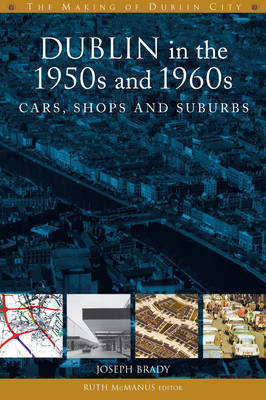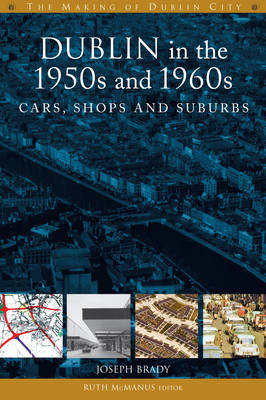
- Afhalen na 1 uur in een winkel met voorraad
- Gratis thuislevering in België vanaf € 30
- Ruim aanbod met 7 miljoen producten
- Afhalen na 1 uur in een winkel met voorraad
- Gratis thuislevering in België vanaf € 30
- Ruim aanbod met 7 miljoen producten
Zoeken
Omschrijving
After the relative gloom of the 1950s, there was a rapid economic pick-up in the early 1960s. Car ownership increased as standards of living improved and Dublin, in common with other European cities, engaged in much soul-searching about what kind of city was needed for a car-owning population and whether this differed from the kind of city that people wanted. Cars offered greater accessibility and this, combined with changes in the nature of industry and, especially, in the nature of retailing, profoundly altered the relationship between Dubliners and the city center. A move to self-service and larger and larger scale retail units (especially in food retailing) prompted the move to suburban locations; industry too found benefits in being able to have large-scale, low-rise operations on greenfield sites. The city centre had to redefine its role, but it had a boom in service employment in the 1960s which demanded purpose-built office accommodation. The preferred location for this commercial activity was the southeastern sector of Dublin, where the Georgian landscape was best preserved. The nature, scale and speed of change demanded a robust approach to planning. This was the period in which Dublin eventually got its first statutory town plan. These issues are explored in this, the seventh volume in the Making of Dublin City series. (Series: The Making of Dublin, Vol. 7) [Subject: History, Urban Planning & Growth, Housing, Architecture, Social & Cultural History, Irish Studies]
Specificaties
Betrokkenen
- Auteur(s):
- Uitgeverij:
Inhoud
- Aantal bladzijden:
- 448
- Taal:
- Engels
- Reeks:
Eigenschappen
- Productcode (EAN):
- 9781846826610
- Verschijningsdatum:
- 30/04/2017
- Uitvoering:
- Hardcover
- Formaat:
- Genaaid
- Afmetingen:
- 165 mm x 248 mm
- Gewicht:
- 367 g

Alleen bij Standaard Boekhandel
+ 139 punten op je klantenkaart van Standaard Boekhandel
Beoordelingen
We publiceren alleen reviews die voldoen aan de voorwaarden voor reviews. Bekijk onze voorwaarden voor reviews.











